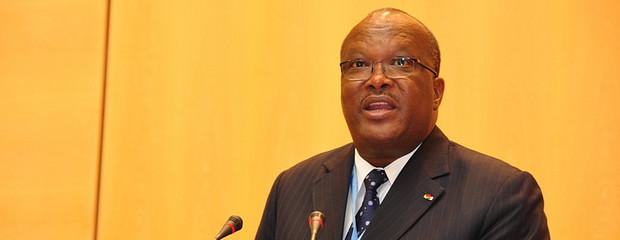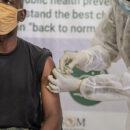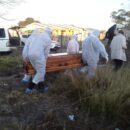A child’s death sentence highlights the fight over Sudan’s legal system
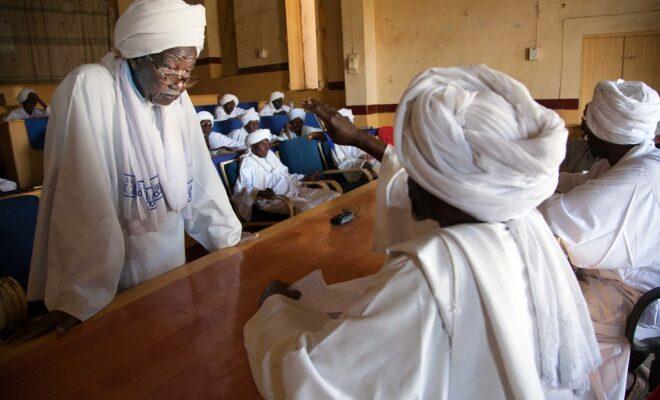
In both the courtrooms and on the streets, activists are calling for Sudan’s legal system to uphold human rights.
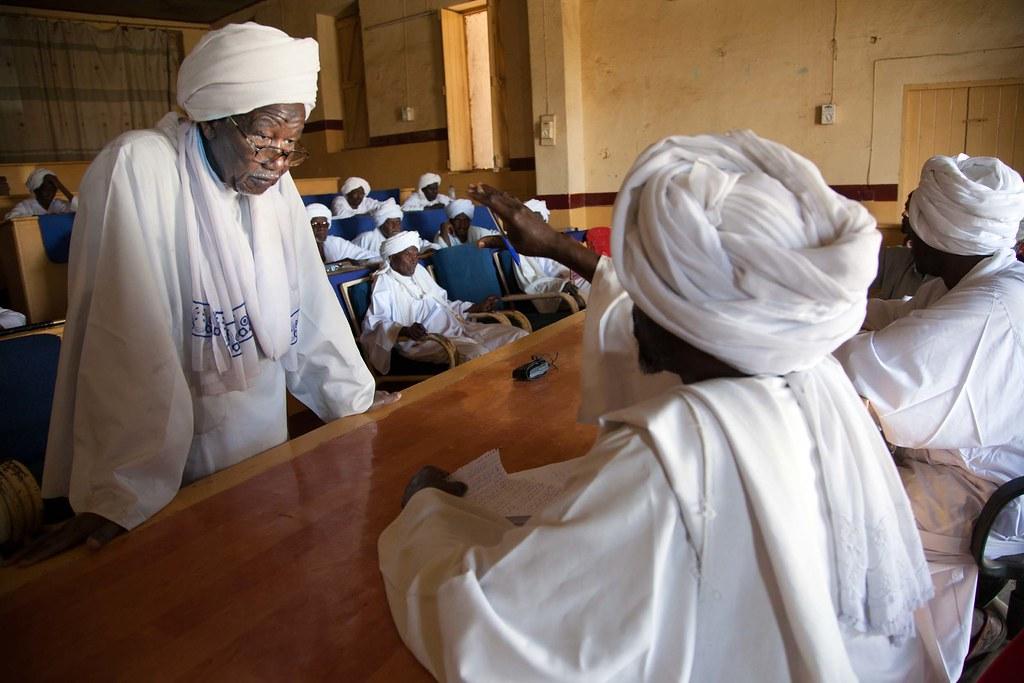
Local judges attend a human rights workshop in North Darfur, Sudan. Credit: Albert González Farran/UNAMID.
On 27 August, 2013, two boys lost their lives. Abas Muhammad Noor and Abdallah al-Ameen were playing football when a fight broke out between them. Abas, then 15 years old, stabbed and killed 17-year-old Abdallah. Some accounts state that a bystander passed Abas the knife. Abdallah’s life was taken from him that day in an episode of tragic violence. Abas’ life would soon also be forfeited at the hands of the state.
Abas was arrested. Since there was no argument that he acted in self-defence or there were other mitigating circumstances, he was charged with intentional murder. Aged 15, he was tried as a minor under Sudan’s 2010 Child Act. He was sentenced on 7 January 2014 to three years of juvenile detention and five additional years of adult detention.
Sadly, this was not the end of the story.
Sudan’s Court of Appeal denied that Abas should be tried as a child and overturned the ruling.
It asked the lower court to issue a new sentence. It decided on capital punishment. A further appeal brought momentary relief for Abas, but a subsequent review of this appeal reinstated the death sentence. Finally, the Constitutional Court heard the case. On 14 May 2019, that court upheld the sentence, condemning Abas to death by execution.
A contradictory legal system
The erratic back and forth in Abas’ case arises from an old debate that troubles the very foundations of the Sudanese state, including its legal system. Today, as the revolution continues in Sudan, this debate has resurfaced with vigour.
Sudan’s current legal system has been shaped over 30 years of state repression. During this period, former President Omar al-Bashir used and manipulated the law to suppress dissent, surveil the population, and infiltrate people’s private lives.
The ease with which he was able to do this was no accident. Al-Bashir, who was removed on 11 April 2019 following months of protests, inherited the system from his predecessor. President Jaafar Nimeiry had established a highly centralised and authoritarian legal system in response to growing opposition. In 1983, he declared nation-wide Sharia law and rapidly constructed special courts to implement a single state-sanctioned form of Islam. These came to be known as the September Laws.
Perhaps most famously, this system allowed for the execution of opposition figure Ustaz Mahmoud Mohammed Taha on charges of apostasy in 1985. The Islamic Republican defended himself in court using arguments also based on interpretations of Sharia, but his deviation from the accepted political line was deemed a religious crime.
Under al-Bashir and Nimeiry, religious justification and centralised state power have made the law a powerful instrument for the ruling regime. However, Sudanese law is not completely co-opted by Islamist politics. Activists have ensured that the country’s constitution enshrines various human rights, and Sudan is a signatory to several international legal conventions.
This has led to some contradictions at the heart of Sudan’s legal system. The 2005 Interim Constitution includes both “Islamic Sharia” and international human rights conventions as sources of law. Similarly, while the 1991 Criminal Act says adulthood begins at visible puberty, in line with some interpretations of Sharia, the 2010 Child Act puts the age of adulthood at 18.
It is these inconsistencies that account for Abas’ differing treatment in the courts. Some judges deem that he should be treated with the “status and dignity” of a child, ruling out capital punishment. Others say he should be sentenced as an adult and therefore be eligible for execution under the Islamic concept of qisas or retribution. In 2007, Constitutional Court judges refused capital punishment on a similar case. Yet lawyers worry that the judgment in Abas’ case, which argued that the Sharia must prevail, marks a turn away from human rights.
Human rights vs. religion?
As Abas’ lawyers push for a human rights-based conception of law in their client’s case, a similar struggle is occurring on the streets. One of the rallying cries of the revolution is for the country’s legal system to be totally reformed. The Declaration of Freedom and Change, signed by opposition groups on 1 January 2019, includes a demand for “an independent judicial system…based on a constitution, protection of human rights and the rule of law”. Protesters argue that putting human rights rather than religion at the centre of governance better serves the whole Sudanese nation, which is far more diverse than the Arab- and Islam- centric ruling ideology has admitted, or permitted.
[“I’m against all of the laws of this regime”: What Sudan’s women want]
Of course the question of rights vs. religion is not straightforward, and debates within the protest movement show how widely Sudanese opinion varies on the issue. For instance, the controversy over “Columbia”, an area of the sit-in protest in which drugs and alcohol were said to be available, showed both how eager many people are to exercise freedom and how deeply contested the idea of freedom beyond a single vision of Islam still is to others.
Critics of human rights also remind us that the international rights framework comes with its own problems and its own worrisome ideologies and history. Meanwhile, some Sudanese scholars and jurists – such as Abdul-Rauf Mallasy and Saniya al-Rashid – argue that there is no need to choose between Islam and human rights. The two systems can complement and even reinforce each other.
These are crucial debates which the Sudanese people are being prevented from having on a national stage, as the Transitional Military Council continues to use violence to block the formation of a democratic civilian government. The work to dismantle this system continues on the streets and in the courtrooms.
As for Abas, now 21, his only remaining hope within the Sudanese legal system lies in a still unscheduled constitutional review that could happen any day now. After that, his team of lawyers will be forced to try the African Commission of Human and Peoples’ Rights. They are eager to raise awareness about Abas’ case – including through the hashtag #SaveAbas – in the hope of pushing the court to change its decision on review.


